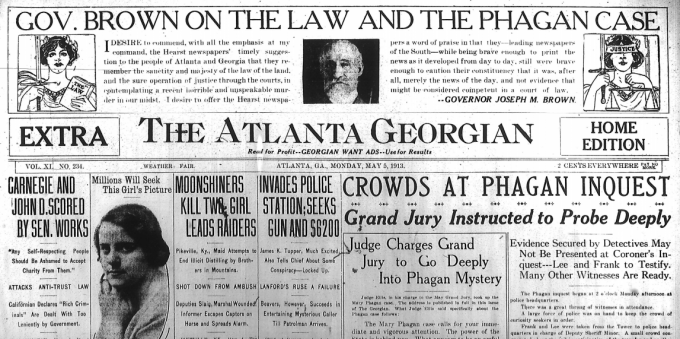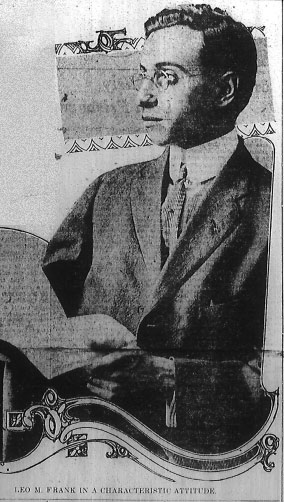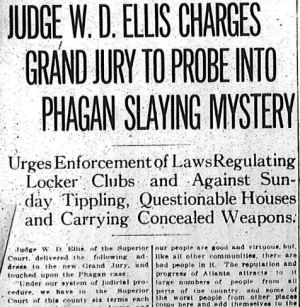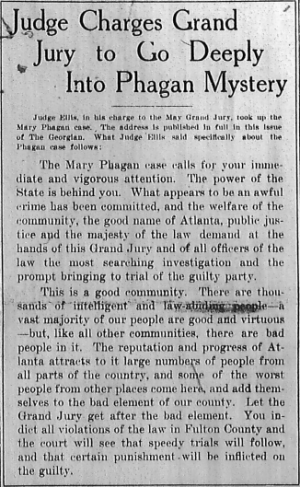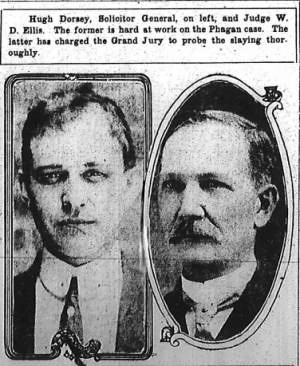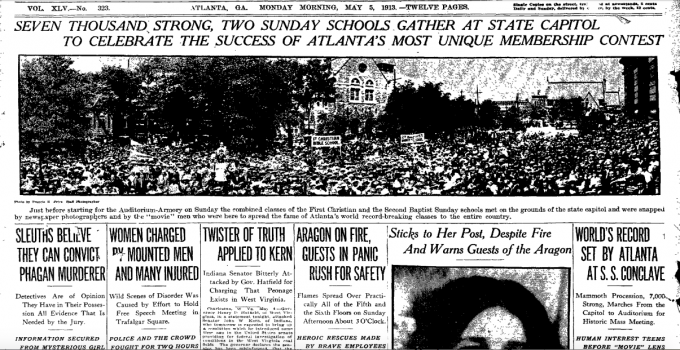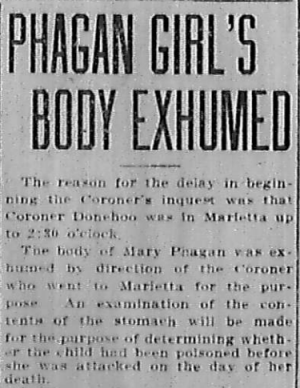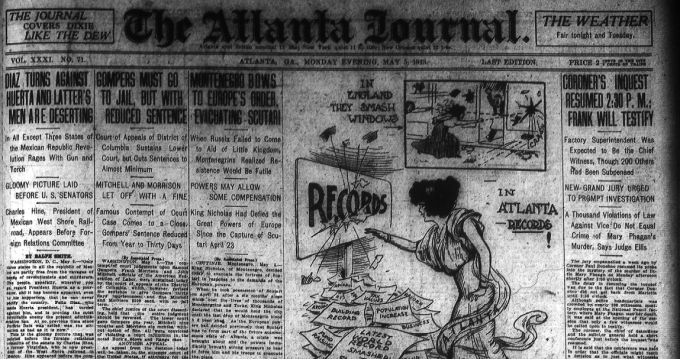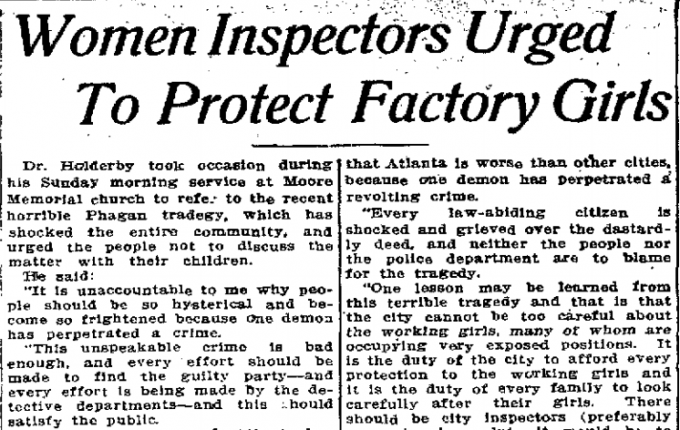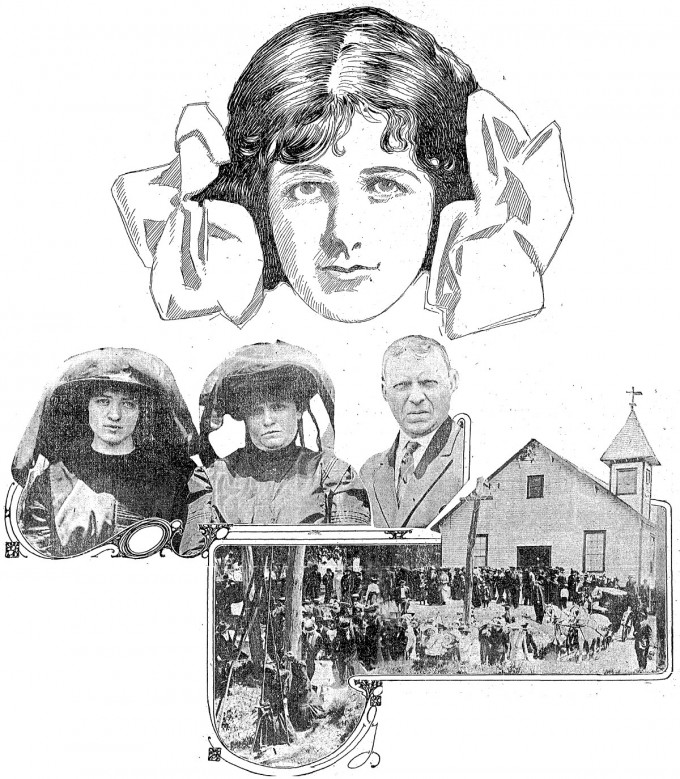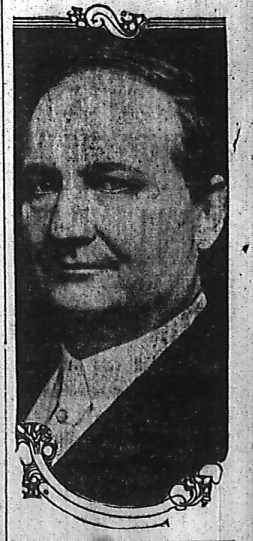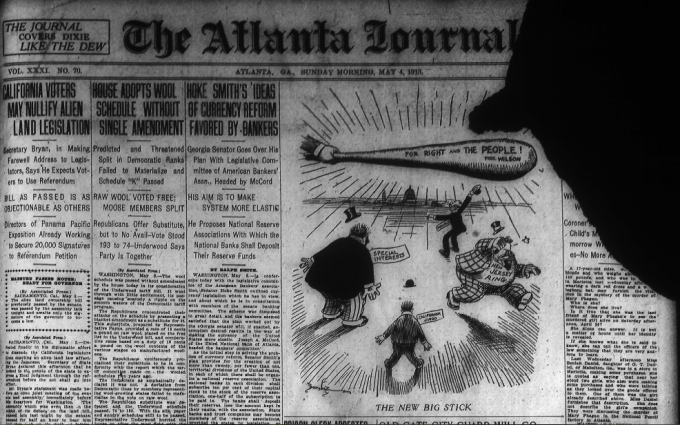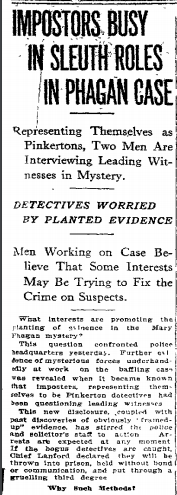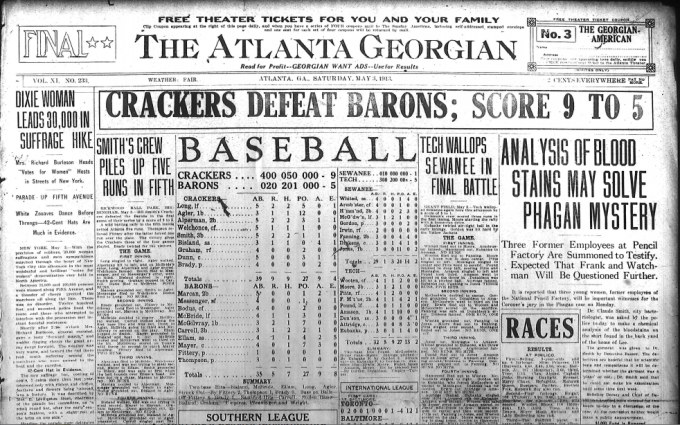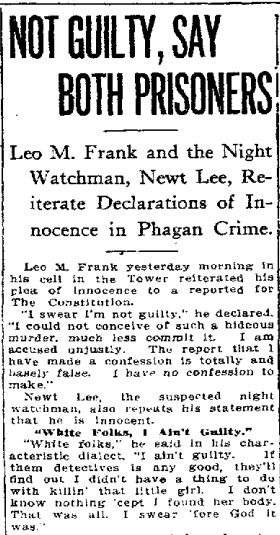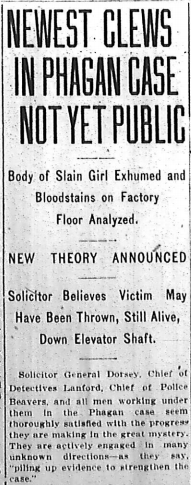 Another in our series of new transcriptions of contemporary articles on the Leo Frank case.
Another in our series of new transcriptions of contemporary articles on the Leo Frank case.
Atlanta Georgian
Tuesday, May 6th, 1913
Body of Slain Girl Exhumed and Bloodstains on Factory Floor Analyzed.
NEW THEORY ANNOUNCED
Solicitor Believes Victim May Have Been Thrown, Still Alive, Down Elevator Shaft.
Solicitor General Dorsey, Chief of Detectives Lanford, Chief of Police Beavers, and all men working under them in the Phagan case seem thoroughly satisfied with the progress they are making in the great mystery. They are actively engaged in many unknown directions—as they say, “piling up evidence to strengthen the case.”
What evidence the officials have other than that which has already been made public they refuse to divulge. Solicitor Dorsey declines to make public his case in the newspapers. He is investigating every phase of the matter through trusted men working under this own direction.
It is perfectly proper for the chief prosecuting officer to withhold any and all evidence until such time as he may present his case to the Grand Jury.
That there is new and startling evidence seems true, but just what it indicates the officials refuse to say, and the newspaper reporters, therefore, are merely guessing at what may be, or may not be, the actual facts. Continue Reading →

